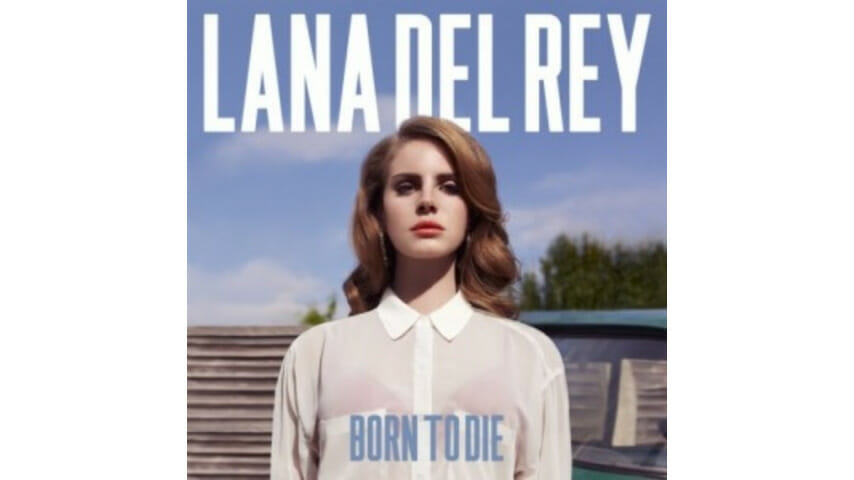Lana Del Rey: Born to Die

Let’s table opinions for a few paragraphs and talk about facts.
It’s a fact that I’ve played Lana Del Rey’s songs 58 times this week and 76 times this month. It’s a fact that I’ve caught myself singing or humming several tunes off Born to Die during this period. In the shower: “Light of your life/ Fire of your loins/ Tell me you want me/ Give me them coins.” Making toast: “Diet Mountain Dew/ Baby New York City/ Never was there ever a girl so pretty/ Do you think we’ll be in love forever? Do you think we’ll be in love?” At the laptop, writing a Paste review: “Red, white, blue in the skies/ Summer’s in the air baby/ Heaven’s in your eyes.” Sometimes these weren’t me singing, but rather my girlfriend, who’s normally shy about singing but quite public about her love of Lana Del Rey. It’s a fact that her ringtone is “Lolyta,” the original version of the Born to Die bonus track “Lolita.” We both prefer the one with the “y” spelling and the Peter Gunn-style bassline. She disagrees with me that it sounds like Britney Spears. She hates Britney Spears. I don’t. You should Google it if you’re a Britney fan.
I first encountered “Lolyta” when “Video Games” first surfaced and I wasn’t entirely sold on the Artist Formerly Known as Lizzy Grant. I found her imagery pandering and her phrasing slipshod. I didn’t think she played the role she’d carved out for herself as well as Nina Persson in the Cardigans, or Sarah Nixey in Black Box Recorder, or Holly Golightly. She sounded much sadder and less convinced of the words coming out of her mouth—and later it turned out people didn’t just believe they weren’t her words but that it wasn’t even her mouth.
Why am I telling you this, right? Ms. Del Rey has been compared to everything from a “faked orgasm” to an “android built by a grieving scientist to remember his hot dead wife.” I’ll throw my own into the hat: Lana’s like the robot girlfriend Warren Mears built for himself on Buffy who he eventually grows bored with and leaves for another woman. I’m kidding though. Lana reminds me of whomever the last artist was that that I felt compelled to play 76 times in a month and sing all the time because their melodies were in my head all the time. How alone I am in that will be proven this week when Born to Die guns for the #1 spot on the Billboard 200.
-

-

-

-

-

-

-

-

-

-

-

-

-

-

-

-

-

-

-

-

-

-

-

-

-

-

-

-

-

-

-

-

-

-

-

-

-

-

-

-








































